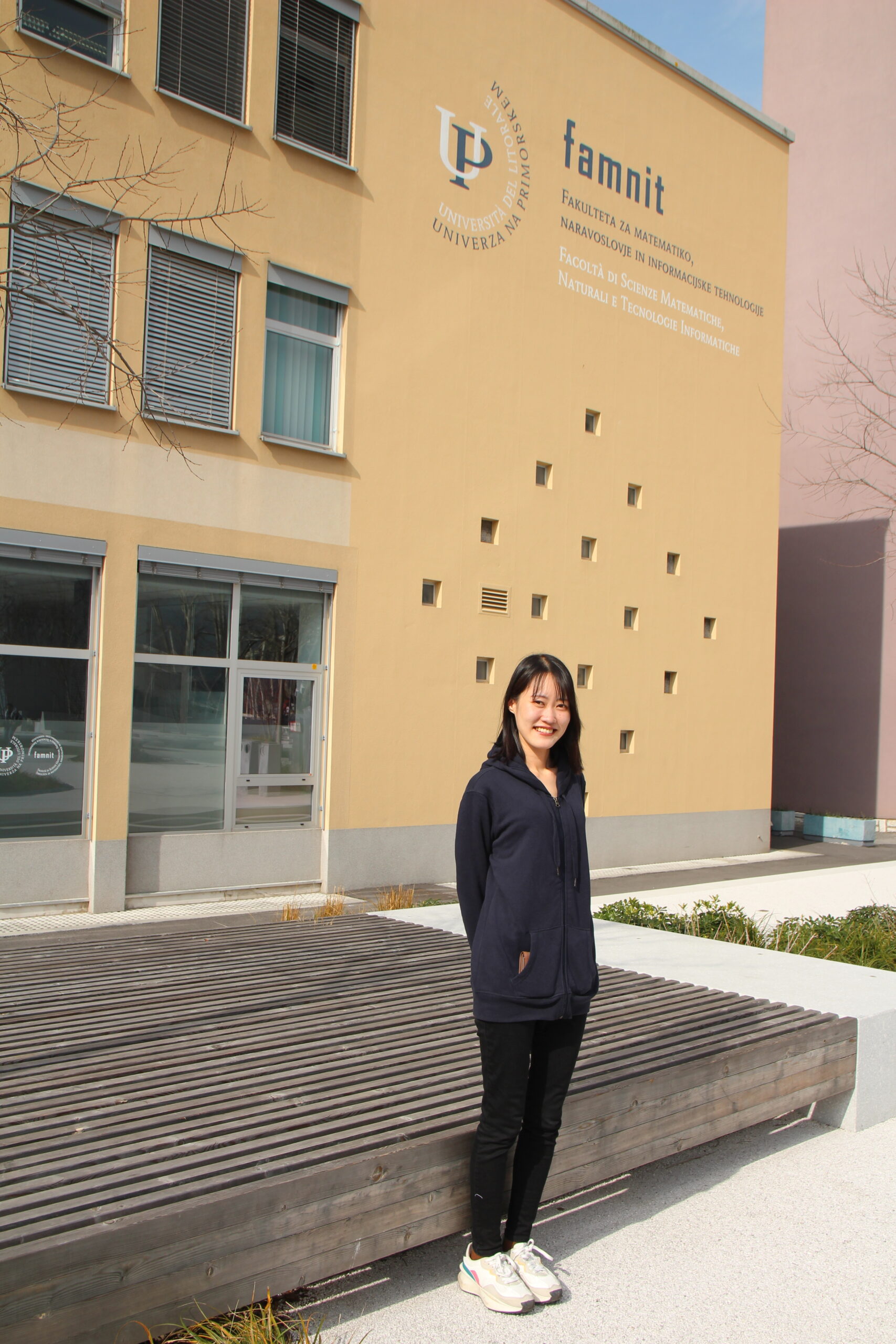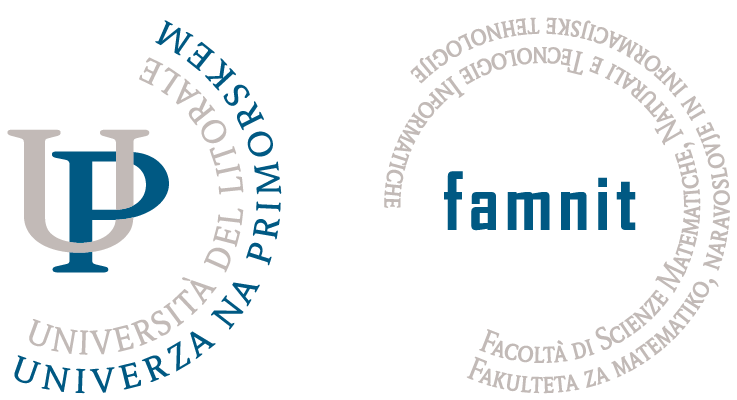Master’s student, Yuri Yoneyama from Japan, decided to come to Slovenia as part of a research project involving human-computer interaction and augmented reality. Below, she reveals all about her journey and her work. In addition, she also explained the differences and similarities between Slovenia and Japan.
Yuri, a Master’s student, at the Nara Institute of Science and Technology in Japan, visited the Faculty of Mathematics, Natural Sciences and Information Technologies (UP FAMNIT), in February, as she mentioned she was amazed by Slovenia quite some time ago.
However, her main reason relied on the visit of Assoc. prof. Matjaž Kljuna and Assoc. prof. Klen Čopič Pucihar from the Department of Information Sciences and Technologies (UP FAMNIT), who visited Japan to present their research area, where they also met and worked together on a joint project.
She considers the HICUP – Human-Computer Interaction Laboratory at the University of Primorska as an important crossroads between Japan and Slovenia.
“In my home country-Japan, I am doing my Master’s in the field of human-computer interaction and augmented reality. Within that, my research project relies on people who are struggling with social anxiety, which is also recognised as one of the most common mental health disorders. Besides, my greatest wish shortly is that people with special glasses, which I am designing, will tackle their anxiety easier. ” She also presented her prototype in the HICUP lab, where enjoys her work and is learning a lot, even though sometimes it can take a lot of effort.
In the interview, she also mentioned that Slovenia was a great surprise for her, as she certainly did not imagine that it is such a developed country. “You live in a wonderful country, which I would love to revisit! However, you have a very advanced laboratory and very hard-working professors, which provides a pleasant working environment, ” she smiled, “sometimes they can be amusing as well. If I compare it to Japan, the work structure here is very different! We have stricter rules,” says Yuri Yoneyama.
She was also very fascinated by Slovenian culture and people.“ We don’t have carnivals in Japan as Slovenian people have, also I would like to add that people here are very nice. If I emphasize my visit to the store where the shop assistant kindly smiled and was also very hospitable.” The biggest gap between countries is in her opinion public transport, as she adds “well, just terrible! in Japan, we have very good connections, and if there are delays, this can be very punishable”, she concludes.



